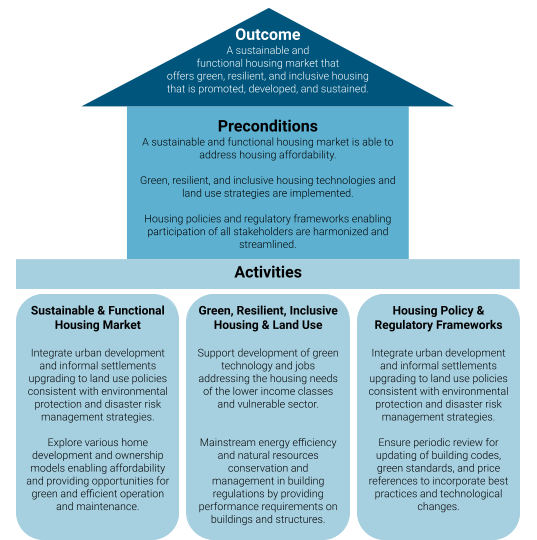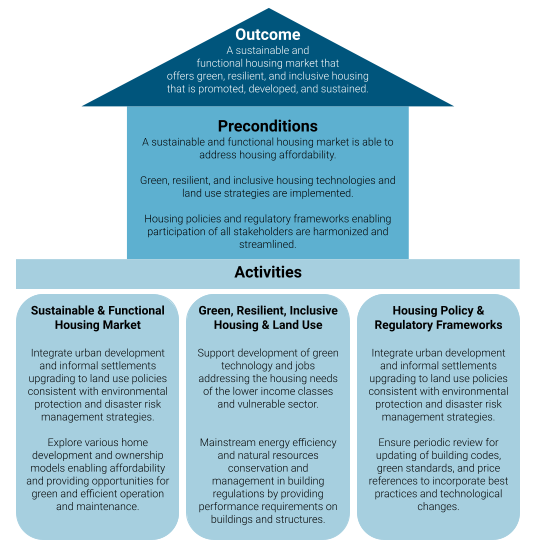A Landscape Analysis of Sustainable, Green, and Circular Housing Solutions in the Philippines
This study aimed to answer the question “How might we make green housing more affordable and accessible for financial service providers, builders, and end-users” in the Philippines for Habitat for Humanity. This was accomplished by 1.) defining and analyzing sustainable, green, and circular housing and construction concepts, 2.) mapping the housing value chain to identify stages, stakeholders, approaches, challenges, and opportunities to greening the affordable housing value chain, and 3.) developing a Theory of Change to explain how a green and circular housing value chain can be achieved.
Through mapping the housing value chain, emerging themes, solutions, innovations, enabling interventions, and capabilities and preconditions were identified. One emerging theme is that the business case for green, while largely enabled by financing and policy, does not necessarily require newer construction technologies, they simply must allow for an increased supply of housing units. Additionally, there is an opportunity to establish planning and design code standards that are aligned with green principles. Some of the solutions and innovations identified across the value chain include passive design strategies and energy and water capture technologies; more efficient construction technologies to reduce resources, waste, and cost, and waste reuse models in material sourcing and production. Additionally, it was found that innovative financing and policy can be used to accelerate housing production by attracting homebuilders to venture into green housing development. Lastly, the Theory of Change developed through this study found that transforming the housing value chain to green unlock necessary preconditions to ensure a functional housing value chain that can enable homebuilders to participate in the production of housing stock through green financing mechanisms, and at the same time provide green and resilient shelter for end-users.

Theory of Change to achieve a sustainable and functional housing market that offers green, resilient, and inclusive housing. Attribution: Dean Ashton Plamenco
